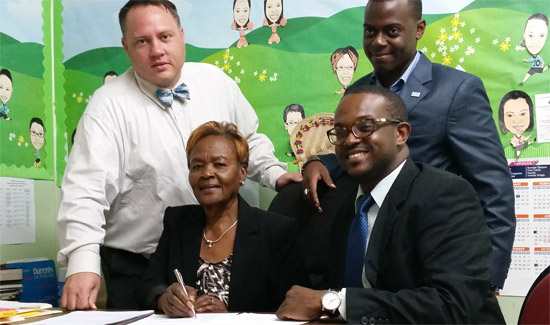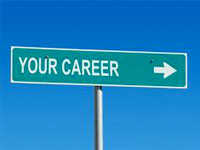Education is certainly amongst the most emotionally charged topics in The Bahamas today. This is perhaps the very reason we struggle to get this area on track. Psychology teaches us that rational decision-making is diminished when emotions are high.
Ralph Massey’s opinion piece commenting on a Nassau Guardian article entitled Dismal Exams (August 8, 2012), continues the status quo by suggesting a misguided model for educational improvement, that will in my opinion, do nothing more than reproduce exactly what we have now, an under-forming education system.
The reality is clear, increasing the length of classes, or the school day, or even the school year will have little impact on school achievement. All successful school improvement strategies have focused on effective teaching on the one hand, and on ensuring that teachers and school leaders are well tooled to maximize student success on the other.
If we took a few moments to analyze what makes some charter schools successful, at the core, is little more than a focus on the above. And let’s not get too carried away about the success of charter schools and ignore mounting data on the large numbers of charter schools that perform worse than failing public schools all across the United States.
The example used in Massey’s response, referencing Washington DC in particular is akin to what transpired in our recent general election. Michelle Rhee, the former school chancellor in Washington DC, was undoubtedly capable of changing the trajectory of institutionalized failure in DC. Her short tenure there produced improvements.
The same is true, in my opinion, of former Prime Minister Hubert Ingraham who will be remembered as an effective prime minister. These leaders befell an identical fate.
Dr. Myles Munroe said it best: “You cannot pursue the agenda at the expense of the relationship.” It is precisely this point that makes school improvement a massive prickly patch and exactly why we must be careful to not continue to damage our public relationship with our teachers and schools.
So here are some alternatives to Massey’s suggestions of “what can be done”:
• Significantly increase the investment in ongoing teacher professional development to at least two percent of the Department of Education’s (DoE) budget. I have never met a teacher who doesn’t want to be successful. As it is clear that we are not successful in education, we need to rally behind our teachers and school leaders in ways that support their work and develop with them culturally relevant strategies that will move our national achievement out of the mire of continued failure. Let’s be clear, there are a sufficient number of teachers in public schools in The Bahamas who know just how to turn the tide. We need to listen to them. The DoE is right to reject the model of the KIPP (Knowledge is Power Program) school system and must instead focus on success for every child in every school.
• Instead of issuing vouchers for students to attend independent schools, set clear national targets for school improvement – targets that have been developed outside of the hallowed walls of a few self-proclaimed sages. Consult widely with education professionals, and make a research-based conclusion to place a laser-like focus on improvement in a few key areas. Expand on those areas as targets are achieved. If you want to issue vouchers, make them self-directed professional development vouchers for teachers and schools to use to support their efforts of achieving the improvement targets.
• Ensure that curriculum goals in mathematics and language arts are sufficiently clear, and again – provide targeted professional support for our teachers so that they can deepen their repertoire of teaching strategies to better reach all students under their charge. It is nothing more than emotional talk, to suggest that systematically dismissing poor performers is an effective answer or even possible. It is not clear that teachers are aware of what the expectations are, and if the expectations are not clear – then that is exactly what they achieve.
School improvement in this country is possible. We have the will and skill to guide every student in The Bahamas to academic success. And it is on the point of the political barrier that I do agree with Massey.
Indeed, “it takes courage, conviction and dedication to do what is in the interest of the people and the nation rather than in the interest of the present stakeholders in the failed system”.
By: Makia Gibson
Nassau, The Bahamas
August, 2012



